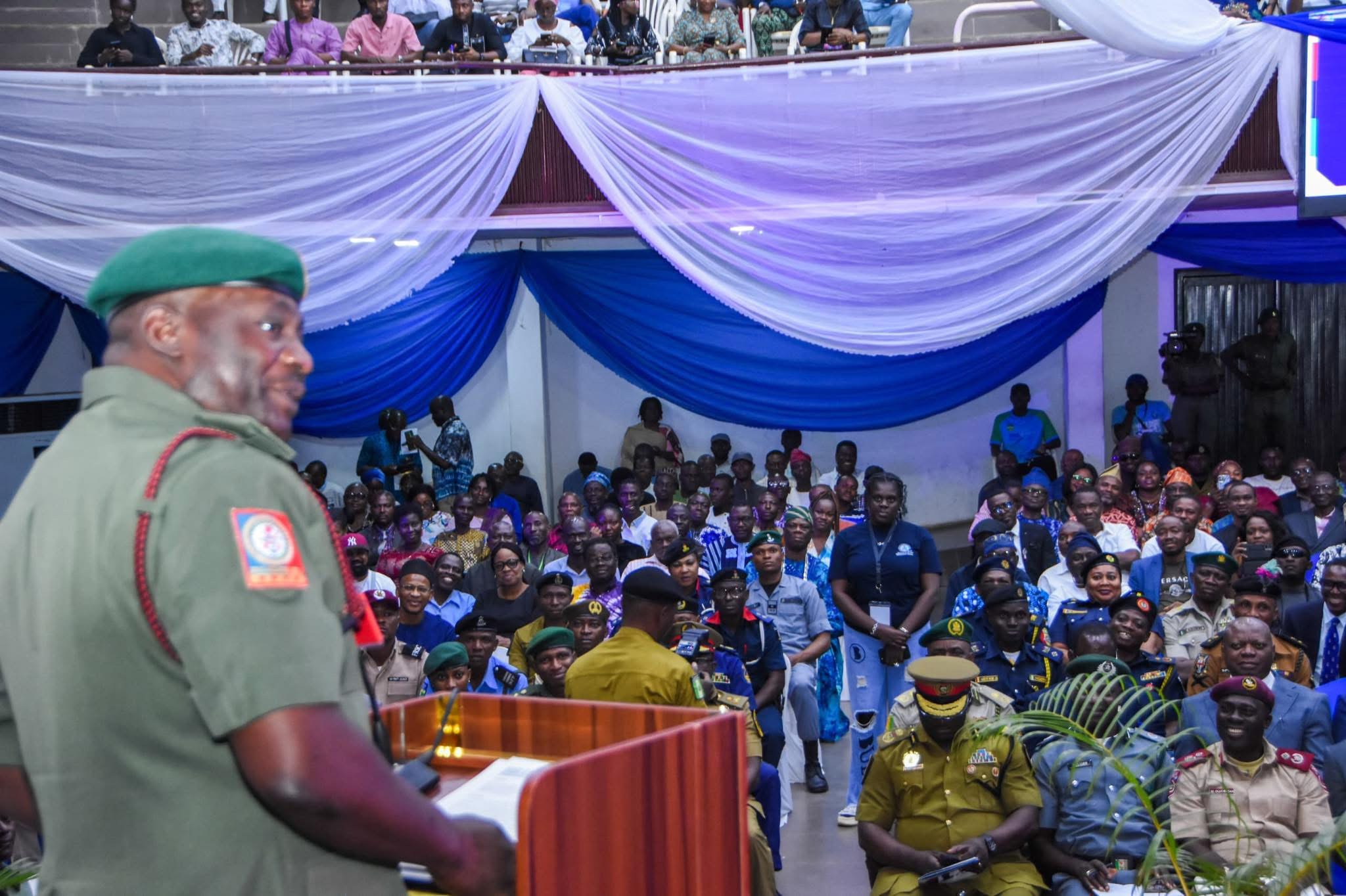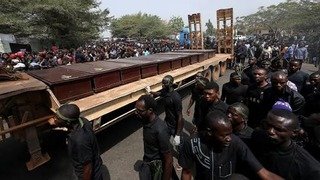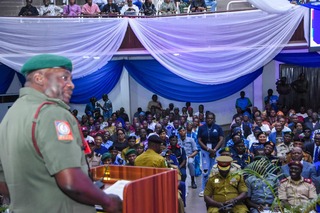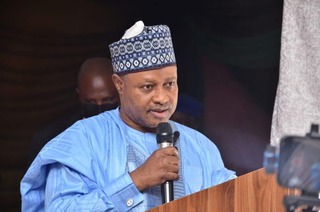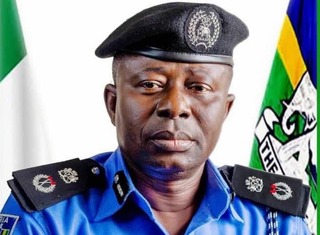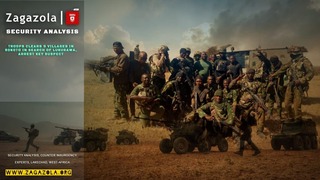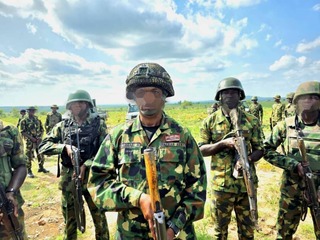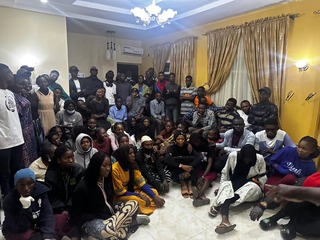CDS CALLS FOR NATIONAL UNITY, INSTITUTIONAL STRENGTHENING TO TACKLE GLOBAL FRAGILITY
The Chief of Defence Staff (CDS), General Christopher Gwabin Musa, OFR, delivered a landmark public lecture today, 24 July 2025 at the University of Ibadan titled “Global Fragility and Security Management in Nigeria”. The event drew a large audience of scholars, students, members of the Armed Forces, policy experts, and civil society leaders.
In his lecture, General Musa provided an in-depth assessment of the interplay between global instability and Nigeria’s internal security dynamics. He noted that terrorism, climate change, cyber threats, and geopolitical tensions have deepened global fragility, creating complex security challenges for Nigeria and other developing nations.
“The world today is more interconnected than ever, and fragility in one region has immediate consequences in others,” the CDS stated. He cited how the collapse of governance in Libya and instability in the Sahel region have led to the proliferation of arms and extremist ideologies that now fuel terrorism and banditry in parts of Nigeria.
General Musa also addressed the security implications of environmental stress, especially the shrinking Lake Chad Basin, which has displaced millions and increased pressure on land and resources in Nigeria’s border communities. He discussed the impact of global economic shocks, such as the war in Ukraine, which have worsened food insecurity and inflation, as well as the rise of cyber threats and disinformation campaigns, often with foreign backing.
To respond to these multi-dimensional threats, the CDS outlined Nigeria’s evolving security framework, anchored on the National Defence Policy and guided by a Whole-of-Government and Whole-of-Society Approach. These strategies, he explained, integrate the efforts of security agencies, civil institutions, local communities, and international partners.
He highlighted key areas of progress which includes; Leveraging technology such as UAVs and Artificial Intelligence for intelligence-driven operations, Community-led security initiatives through traditional institutions and civil society, Regional collaborations within ECOWAS and the Multinational Joint Task Force to address transborder terrorism And establishment of cyber commands to combat emerging threats in the digital space.
Speaking further, General Musa warned that Nigeria still faces significant challenges, including Porous borders and inflows of illicit arms, Weak governance structures in rural areas vulnerable to criminal exploitation, and external pressures, including conditional arms agreements and foreign-sponsored disinformation campaigns that distort public narratives and undermine security efforts.
To ensure long-term national resilience, the CDS proposed four pillars of action: Strengthening Institutions, especially the justice system, security forces, and democratic governance, Economic Empowerment through youth development, agriculture, and entrepreneurship; Building Community Resilience, by promoting trust, intelligence-sharing, and local early warning systems and Strengthening Global Partnerships, via improved intelligence cooperation and alignment with international best practices.
He called on Nigerian academic institutions to rise to the challenge of knowledge production, national orientation, and security innovation. “The University of Ibadan, as a centre of intellectual leadership, must continue to contribute to the national security discourse through research, dialogue, and mentorship of future leaders,” he said.
General Musa further reaffirmed the Armed Forces’ commitment to protecting the country and called on all Nigerians to embrace their role in national security. “Security is not merely the absence of conflict, but the presence of justice, opportunity, and hope,” he said, while assuring his audience that he has the directives of His Excellency, President Bola Ahmed Tinubu to collaborate with other releveant agencies to tackle the the security challenges facing our country.
The lecture which was chaired by a former Chief of Army Staff and also former Nigeria’s Ambassador to the Bin Republic, Lieutenant General Tukur Buratai (Rtd), ably represented by Lieutenant General Lamidi Adeosun (Rtd) was widely applauded by attendees including the Vice Chancellor University of Ibadan Professor K.O Adebowale, GOC 2 Division Major General OG Onubogu and Senior officers both serving and retired. The lecture marks a significant contribution to national dialogue on security, stability, and sustainable development in the face of global fragility.
Highlight of the event is the conferment of the CDS with fellowship of TeTFund Cenfre of Excellence in Security Management.
TUKUR GUSAU
Brigadier General
Director, Defence Information
24 July 202

